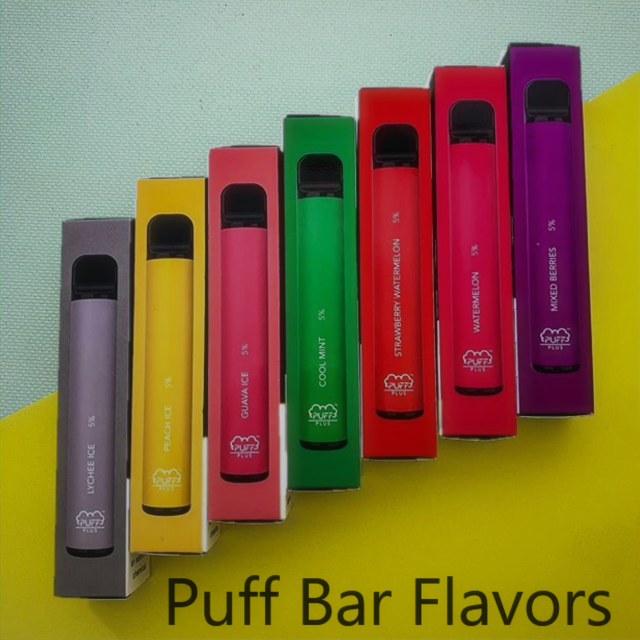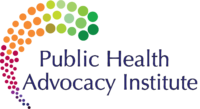CONTACTS:
Mark Gottlieb Meredith Lever
(617) 216-0779 (617) 373-8066
mark@phai.org meredith@phai.org
FOR IMMEDIATE RELEASE
Puff Bar Charged With Violating Massachusetts’ Ban on Flavored e-Cigarettes
In direct violation of state law, Puff Bar sells flavored, disposable e-cigarettes that appeal to teens
BOSTON, MA (June 11, 2020) – Today, the Public Health Advocacy Institute (PHAI) at Northeastern University School of Law initiated action against Puff Bar and Cool Clouds Distribution, Inc., the makers and distributors of flavored, disposable Puff Bar e-cigarettes.
In its claim letter, PHAI alleges that Puff Bar e-cigarettes are sold in Massachusetts in clear violation of a November 2019 state law that prohibits the sale of all flavored e-cigarettes. Puff Bar has become extremely popular, eclipsing JUUL as the favored vape product among young people.
The claim is brought on behalf of 22-year old Juliana Larson of Medford and 33-year old Juliana Shulman-Laniel of Boston, both acting as testers for PHAI. In April, both testers purchased a flavored Puff Bar online through puffbar.com and had the product mailed to their homes in Massachusetts. The package was left at each tester’s doorstep without obtaining a signature.
“Apparently Puff Bar and Cool Clouds Distribution thought that nobody would notice or care that they have been selling flavored e-cigarettes here in blatant violation of Massachusetts law,” said Mark Gottlieb, Executive Director of PHAI. “We care and we will put a stop to it.”
According to PHAI, the sale and shipment of flavored Puff Bar e-cigarettes to Larson and Shulman-Laniel not only violated the state’s 2019 ban on flavored e-cigarettes, it also defied a Massachusetts Attorney General regulation that requires a delivery of e-cigarettes to be made only with a verified adult signature – two laws that aim to safeguard minors from dangerous products, such as Puff Bar e-cigarettes.
The claim also outlines multiple ways Puff Bar is being marketed to youth. A recent Puff Bar advertisement targeted youth and evoked coronavirus stay-at-home orders, stating: “We know that the inside vibes have been . . . quite a challenge. Stay sane with Puff Bar this solo-break . . . . It’s the perfect escape from the back-to-back Zoom calls, parental texts, and WFH stress.”
Puff Bars are sold in 24 different flavors, including “blueberry ice,” “sour apple,” “strawberry donut,” and “mint chip” – flavors that make Puff Bars easily inhalable and attractive to teens. Puff Bar is designed to be sleek, cute, and discreet – appearing less like a nicotine delivery device and more like a harmless, fun accessory. At first glance, a Puff Bar may appear simply to be a USB drive, a design that enables young people to use Puff Bar devices surreptitiously without parents, teachers, or other adults knowing. As a disposable product, Puff Bar is also simple to use and relatively inexpensive – two features that make youth initiation especially easy.
“Puff Bar has recently flooded the e-cigarette market with a product that is designed and marketed to addict young people,” said Dick Daynard, President of the Public Health Advocacy Institute. “Puff Bar and Cool Clouds are selling Puff Bar products in Massachusetts in clear violation of state law, and we want to ensure that these dangerous products are no longer accessible to Massachusetts kids and teens.”
This claim is brought amidst a rising wave of national concern about Puff Bar products, including calls from Congress to close a federal loophole that has allowed for the proliferation of Puff Bar products amidst a nationwide ban on most e-cigarette flavors. The Massachusetts law, however, bans the sale of all flavored tobacco products with very limited exceptions.
If PHAI’s claim prevails, Puff Bar and Cool Clouds Distribution, Inc. will be required to cease their illegal sale of flavored Puff Bar e-cigarettes in Massachusetts.

###
The Public Health Advocacy Institute (PHAI) is a non-profit legal research center focused on public health law located at Northeastern University School of Law. In 2014, PHAI formed the Center for Public Health Litigation, a nonprofit law firm, which uses the civil justice system to improve public health by focusing on litigation targeting tobacco industry products, unhealthy foods, deceptive health marketing, and deceptive gambling practices.
See the claim letter here.
